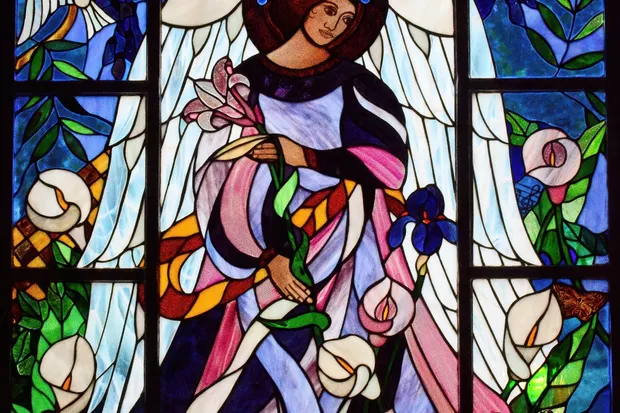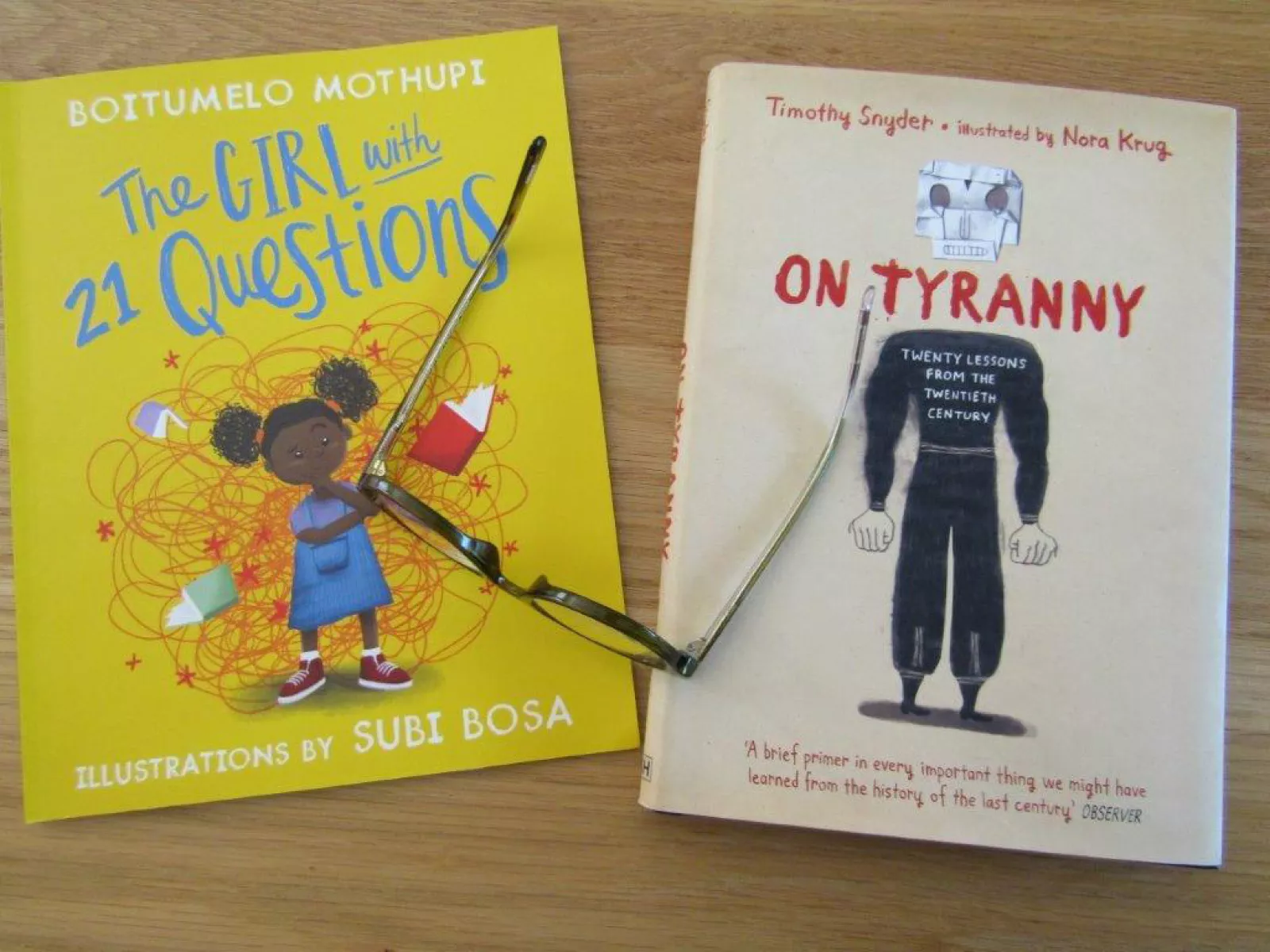From the Junior School head's desk: 11 February 2022
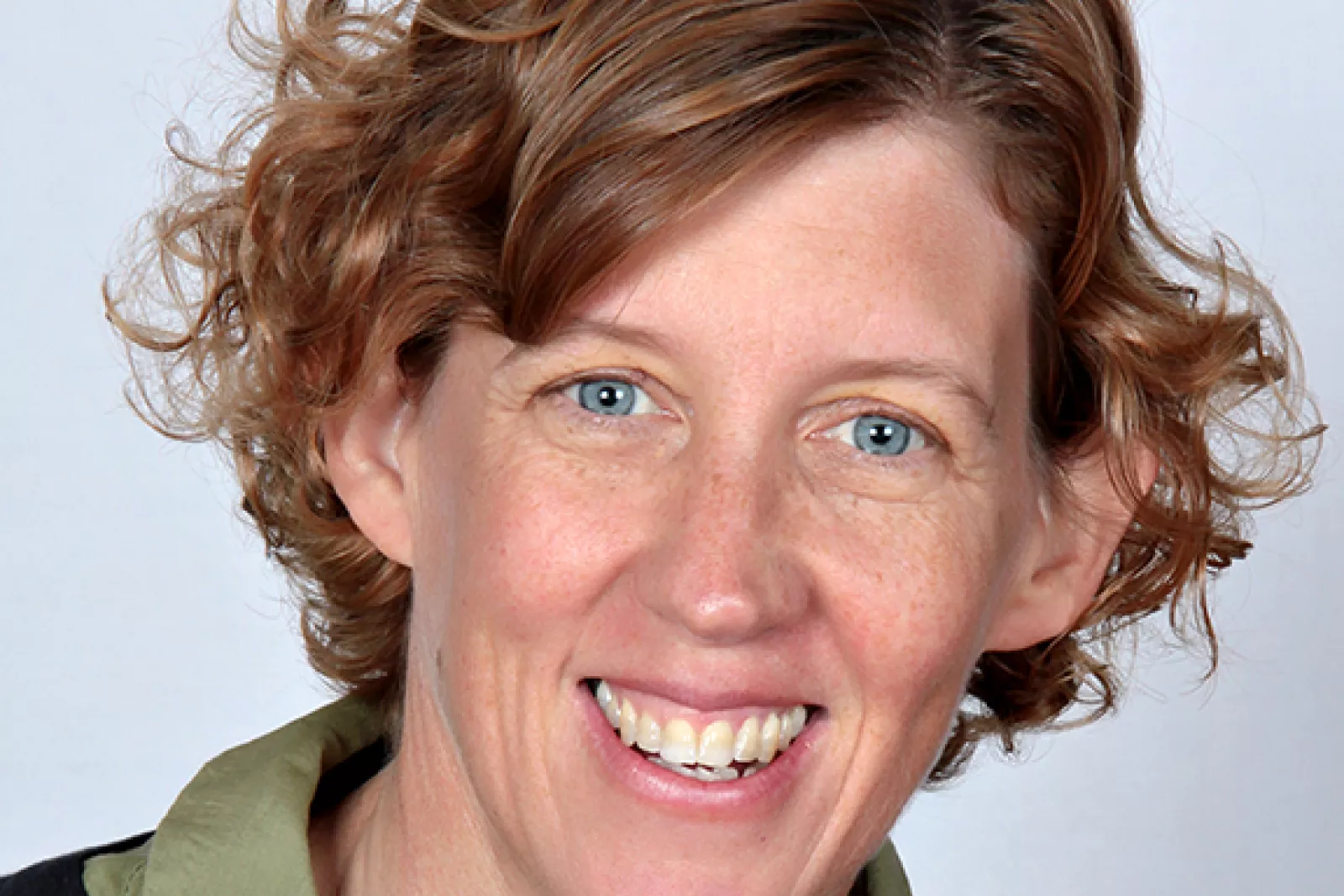
Last week, the girls in the Junior School attended two wonderfully thought-provoking assemblies with Di Gordon and Lauren Howden on reading and book banning respectively.
Referring to a book by local author Boitumelo Mothupi, and illustrated by Subi Bosa, Mrs Gordon and the girls in the Junior Primary considered the value of reading, and the indispensable role it plays in our being able to ask – and answer – far-reaching questions.
In The Girl with 21 Questions, main character, Mathelane, refuses to take anything at face value, prodding, provoking and exasperating everyone around her into thinking about why there are spots on the moon and why we have shadows (a favourite question among the Little Saints children at the moment), as well as more philosophical questions, like, “Do we have to love people who do bad things?” “Mathelane” the book tells us, “was also not scared of asking difficult questions. When her neighbour, Mama Lerato, came home from work, Mathelane would ask: ‘Why does Zaza always have to sweep the yard and wash the dishes but Tshepo does nothing?” This last “difficult” question sparked animated debate among the girls – several of them tried, unsuccessfully, to justify the gendered division of labour to their peers and teachers!
While the Junior Primary girls were being inspired by the story of an incorrigibly curious girl who brought her community together through the power of reading, the Senior Primary girls were being challenged by the topic of book banning, its historical presence in public institutions throughout the world, and its recent manifestation in schools and libraries across the United States.
Mrs Howden presented the girls with a list of books with a common past: all of them had been banned, some several times, somewhere in the world: The Book Thief, Harry Potter, To Kill a Mockingbird, The Lorax, His Dark Materials, The Hunger Games, The Giver (a book the Grade 7s will read this year), Where the Wild Things are, James and the Giant Peach and Alice in Wonderland.
The justifications given for the bannings – that the books are dangerous, unsuitable, suggestive, crude, negative, offensive – tremble with moral outrage, or what American author Judy Blume calls “fear disguised as moral outrage.” As Mrs Howden explained to the girls, quoting Blume, “censorship grows out of fear, and because fear is contagious, some parents are easily swayed. They want to believe that if their children don’t read about it, their children won’t know it. And if they don’t know about it, it won’t happen.”
Using the example of the picture book And Tango Makes Three, based on the true story of two male penguins in New York’s Central Park Zoo who formed a partnership and raised an egg together, Mrs Howden spoke about the impulse to ban books that present diverse experiences to children. Books that tell other stories, ask Mathelane’s “difficult questions,” and show us how to imagine ourselves and our world differently free us to think for ourselves. And what kind of government, school or parent wouldn’t want us to do that?
“Any good novel,” Timothy Snyder reminds us “enlivens our ability to think about ambiguous situations and judge the intention of others.”
(Incidentally, a graphic edition of his indispensable On Tyranny: Twenty Lessons from the Twentieth Century has just been published by Penguin with huge appeal for teenage readers.)
Further, as writer and cultural critic Olivia Laing is at pains to point out: “Empathy is not something that happens to us when we read Dickens. It’s work. What art does is provide material with which to think: new registers, new spaces. After that, friend, it’s up to you.”
We have the material, and these are our children: it’s up to us.
SARAH WARNER
JUNIOR SCHOOL HEADMISTRESS
Related News
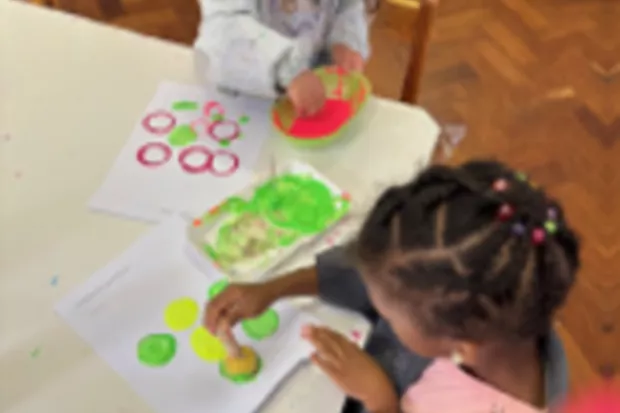
Little Saints News
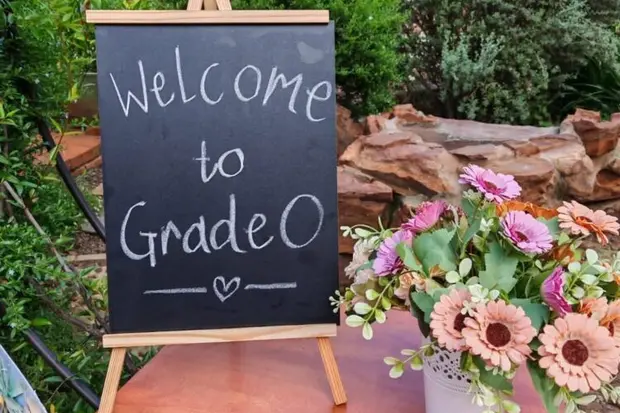
Grade 0 News
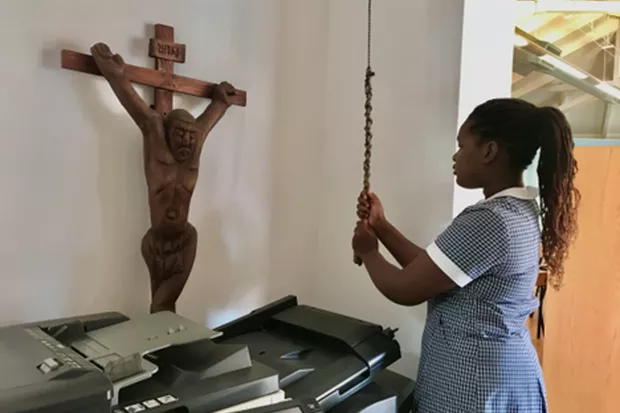
Grade 7 News
